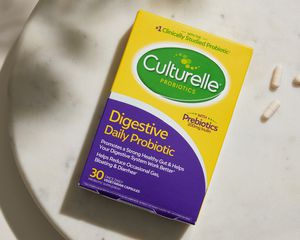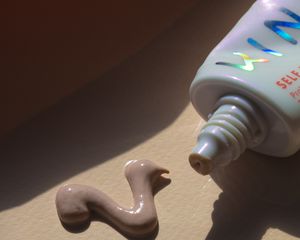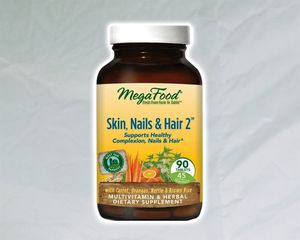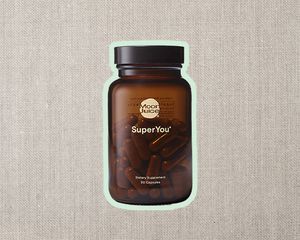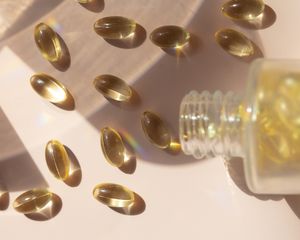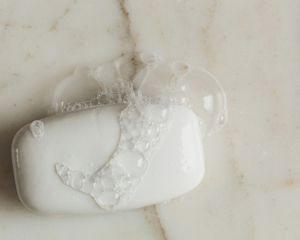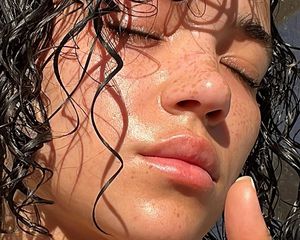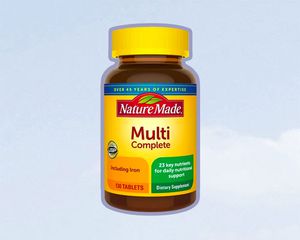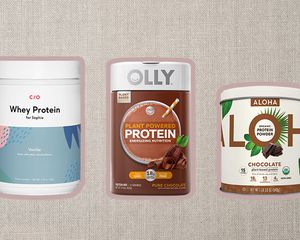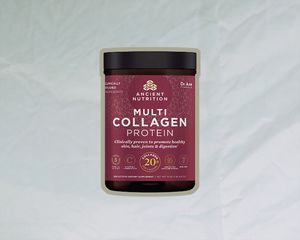
Getty Images
When it comes to the nature of our skin, how often are we asked about our skin type? As a result, we automatically draw upon the common types such as sensitive, normal, combination, oily, or blemish-prone. It isn’t to say that this terminology is incorrect, but we no longer can draw such simple conclusions about our skin.
As a complex organism, our skin isn’t as rigid or immobile as one would think. Our skin reacts to the environment and understanding this influences how we look after our skin. With the guidance of leading dermatologists and skincare experts, we explore their advice for caring for our skin, how the microbiome plays a huge role, and the resources needed to do so. Read their tips, ahead.
Meet the Expert
- Dr. Marie Drago is a Pharmacist and the Founder of Gallinée
- Erika Fogeiro is a beauty expert and the founder of Combeau
- Dr. Jess Braid, is a homeopathic doctor and the co-founder of Adio Health.
- Rhian Stephenson, is a registered nutritional therapist and the Founder of Artah.
- Henrietta Norton BSc Dip NT, is a best-selling author, nutritional practitioner, and the co-founder of Wild Nutrition.
- Lucy Goff is the founder of LYMA.
Skin Type vs Skin Condition.
We may understand that our skin falls within a "type"—normal, combination, dry, oily, or sensitive. Still, according to experts, this only covers half of our skin's story. "We are moving away from skin types and talking more about skin imbalances that come from a better understanding of the skin's ecosystem and how your microbiome plays a role in regulating it," Dr. Marie Drago, founder of Gallinée, explains.
Focusing on our skin's conditions, versus boxing it into a type, encourages optimal results. These conditions present themselves as acne, dehydration, scarring, pigmentation, rosacea, eczema, or broken capillaries. Therefore, tailoring our skincare regimens around improving or balancing our conditions will help to improve our skin's health. Erika Fogeiro, the founder of Combeau, explains that many factors play a role in the overall health of our skin. "Our skin moves through different states of dependencies that include our hormonal cycle, stress levels, sun exposure, or sleep levels," she says. "The skincare market is often focused solely on skin types that can be harmful, as many of us have more than one concern. You may have acne but may also be dehydrated."
Gut-Skin Microbiome
Therefore, we need to look further than just topical treatments and center around an internal approach to re-balance our skin. “With the understanding of our skin microbiome, we also understand that skin health is also strongly linked to the health of our gut microbiome.” Dr. Jess Braid, Co-Founder of Adio Health, tells us.
If there is dysfunction in your gut’s microbiome, it will impact your skin’s microbiome. In taking care of your body holistically and your gut health through nutricosmetics, you’re taking care of your skin’s balance.
Fogeiro has further researched how fundamental understanding our gut truly is. According to Fogeiro, not only is it the blueprint for producing and regulating essential hormones and neurotransmitters like cortisol, but the gut also has a significant impact on inflammation. Without acknowledging our gut microbiome, we may fail to acknowledge our skin's microbiome. "If there is dysfunction in your gut's microbiome, it will impact your skin's microbiome," she says. "In taking care of your body holistically and your gut health through nutricosmetics, you're taking care of your skin's balance."
Nutricosmetics
So, what does tending to our gut microbiome look like? It proportionately considers the health and composition of our lifestyle patterns and nutrition. “Nutricosmetics refers to a category of supplements that aim to address the health of our skin, hair, and nails. They could include things such as antioxidants, collagen, anti-inflammatories, and even supplements that target blood sugar support and the microbiome directly,” Rhian Stephenson, founder of Artah, explains.
Nutritional supplements can support and enhance the essential mechanism that optimally helps the body and skin function. Increasing your collagen levels helps to improve moisture levels and elasticity. Coenzyme Q10 has proven to reduce the appearance of wrinkles and fine lines, and supplementing Zinc helps to support the critical maintenance of the skin.
"We shouldn't see our skin or body like a machine with parts anymore, but like a living and breathing ecosystem where all parts are interconnected."
Shifting from the traditional approach to our skin, we should adapt our approach to see our skin in its full complexity. "We shouldn't see our skin or body like a machine with parts anymore, but like a living and breathing ecosystem where all parts are interconnected," Dr. Drago says. "It means that sometimes your skin concerns come from external elements and can be helped with a topical approach, but also that problems can come from stress, gut problems or anything else internal, and that is where supplements can help."
Supplements: What To Avoid?
With many benefits but many grey areas, the supplement industry is not easy to navigate. Many supplement claims lack scientific data and testing, therefore it's important to always consult your doctor before taking any new supplements. Henrietta Norton, BSc Dip NT, and co-founder of Wild Nutrition, says to look out for fillers and artificial ingredients in supplements. "They are both unnecessary and hard for your body to process," she says. "It is also important to look behind the claims. There are a lot of promises in the market—you must ask the company to validate their claims."
Fogeiro also says to dive deeper into the brand's transparency. "Do they mention the origin of their ingredients? Where are the supplements made? What are these percentages? And finally, with industry regulation being so low, check if clinical studies and scientific research back the ingredients."
Reading The Label
As both Norton and Fogeiro have explained, the secret to understanding the potency of a supplement is by the label—but how do we read it? LYMA Founder Lucy Goff tells us that the order of ingredients on the label is always sorted by highest doses first. Of course, before you take any supplements you should reach out to your doctor or medical expert.
- If a (synthetic or natural) is the top ingredient, then the supplement is marginally made up of fillers instead of the essential actives.
- What are the actives in the supplement? You can research the recommendation dosages via PubMed (a medical journal) and compare if the active’s percentage matches the recommended amount. If not, it is likely the active won’t be as effective.
- Consider if the supplement is formulated with patented ingredients because it means it has been heavily invested and researched by scientists and experts.
The Inside Out Approach
It is not to say that supplements are our only way to fuel and look after our skin. Inheriting a 360-degree approach that encompasses a balanced diet, lifestyle, and skincare routine will work together to enhance your skin's appearance inside and out. Taking a step back from limiting our skin to fitting into five "types" and incorporating more holistic practices that encompass all factors that affect our skin is the modern approach to defining your skin's journey overall.




